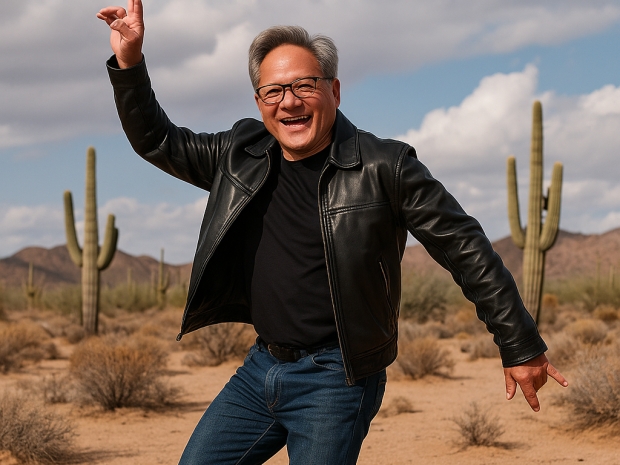The US Commerce Department had slapped restrictions on the chip in April, costing the company billions. But days after Nvidia chief executive Jensen Huang met Donald Trump, the administration made an abrupt U-turn. Speaking in Beijing, Huang said he was "very happy,” after meeting senior Chinese officials.
The US chipmaker recently became the first company to be valued at more than $4 trillion, but its China business has been a glaring weak spot thanks to Washington’s export controls. The new deal shores that up, although it still can’t push its most powerful AI gear into Chinese hands.
The Commerce Department will now issue licences for the H20, a chip designed specifically for China and a top seller there since 2024. Nvidia said deliveries would restart soon. Huang also teased a fresh AI chip for China, aimed at factory automation and logistics. Built on the firm’s flagship Blackwell architecture, it is intentionally crippled to placate US officials, sources said.
Beijing is treating the decision as a goodwill gesture in trade talks. Chips and access to high-tech kit remain a top priority for Chinese negotiators. In June, the two countries agreed to a trade truce, with China promising to speed up approvals of rare-earth minerals crucial for Western manufacturers. This week Beijing even gave conditional approval to a long-delayed $35 billion acquisition by US chip software outfit Synopsys.
Huang, once keen to avoid politics, has turned into a frequent flyer between Beijing and Washington, trying to keep Nvidia’s China access alive. Last week he met Trump, reportedly arguing Nvidia should be free to sell its tech broadly so US companies can dominate AI rather than Chinese rivals. Huang also pitched the same argument to Commerce Secretary Howard Lutnick.
Trump publicly called Huang “my friend” during a May event in Saudi Arabia, praising Nvidia’s market share dominance. Now the CEO is in Beijing again, his third visit this year, assuring officials that Nvidia will keep doing business in China wherever US rules allow.
Nvidia chips are critical for building and running advanced AI models, making Huang a sought-after guest in global capitals. But his latest trip has drawn flak in Washington. Senators Jim Banks and Elizabeth Warren even wrote to Huang, warning him against meeting Chinese firms linked to the military or intelligence sectors.
The geopolitical risk hasn’t gone anywhere. Nvidia has spent years tweaking designs to appease Washington’s export rules, only for the goalposts to shift repeatedly. In May, Huang blasted US export policy as a “failure.”
The Trump administration could still change its mind if trade talks go sour. The Commerce Department already has harsher semiconductor restrictions drafted, waiting to be unleashed.
Meanwhile, Nvidia and others are still waiting on a stalled deal with the United Arab Emirates to ship hundreds of thousands of AI chips over several years. Washington fears those chips could quietly drift toward Beijing, given the Emiratis’ close ties to China.

